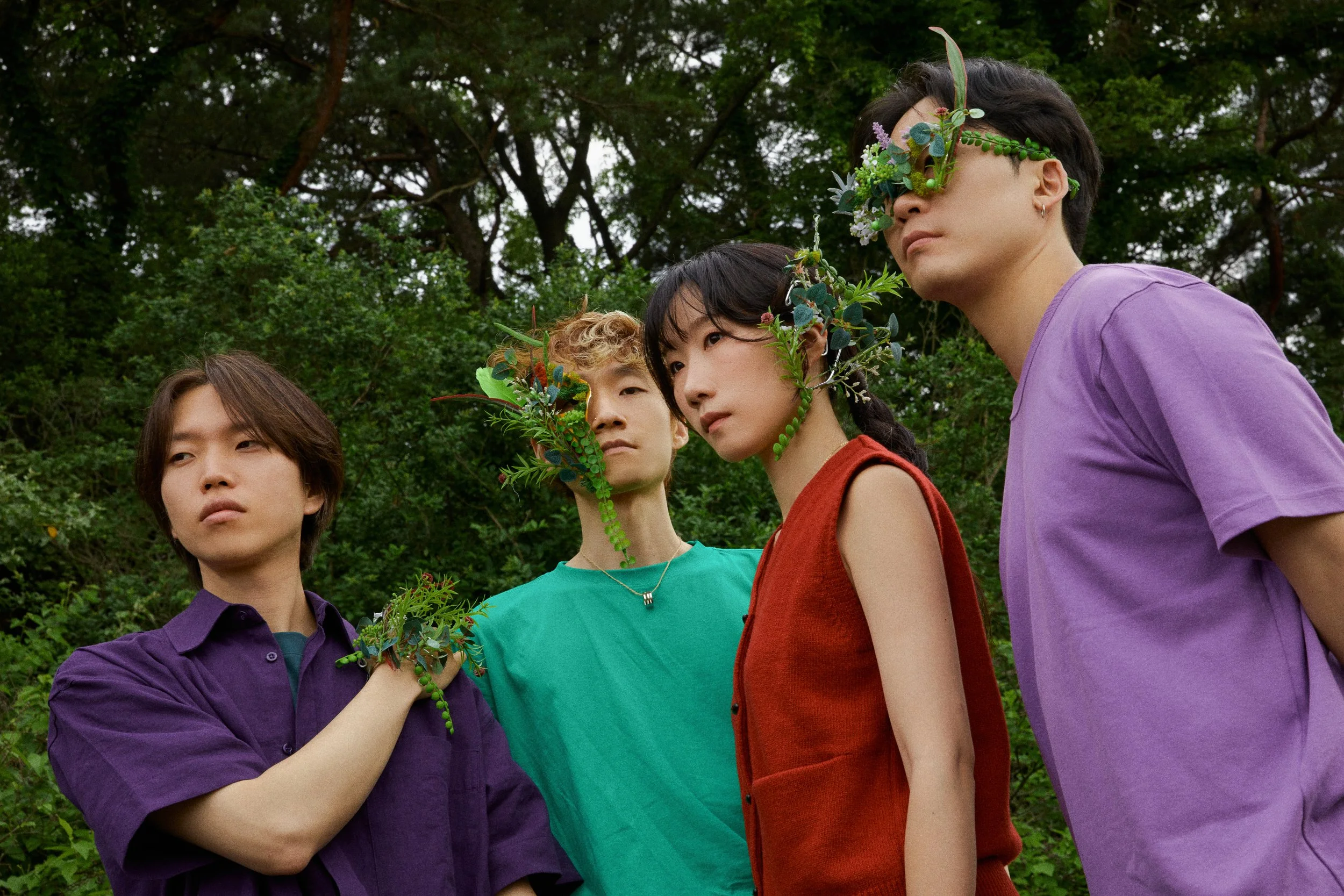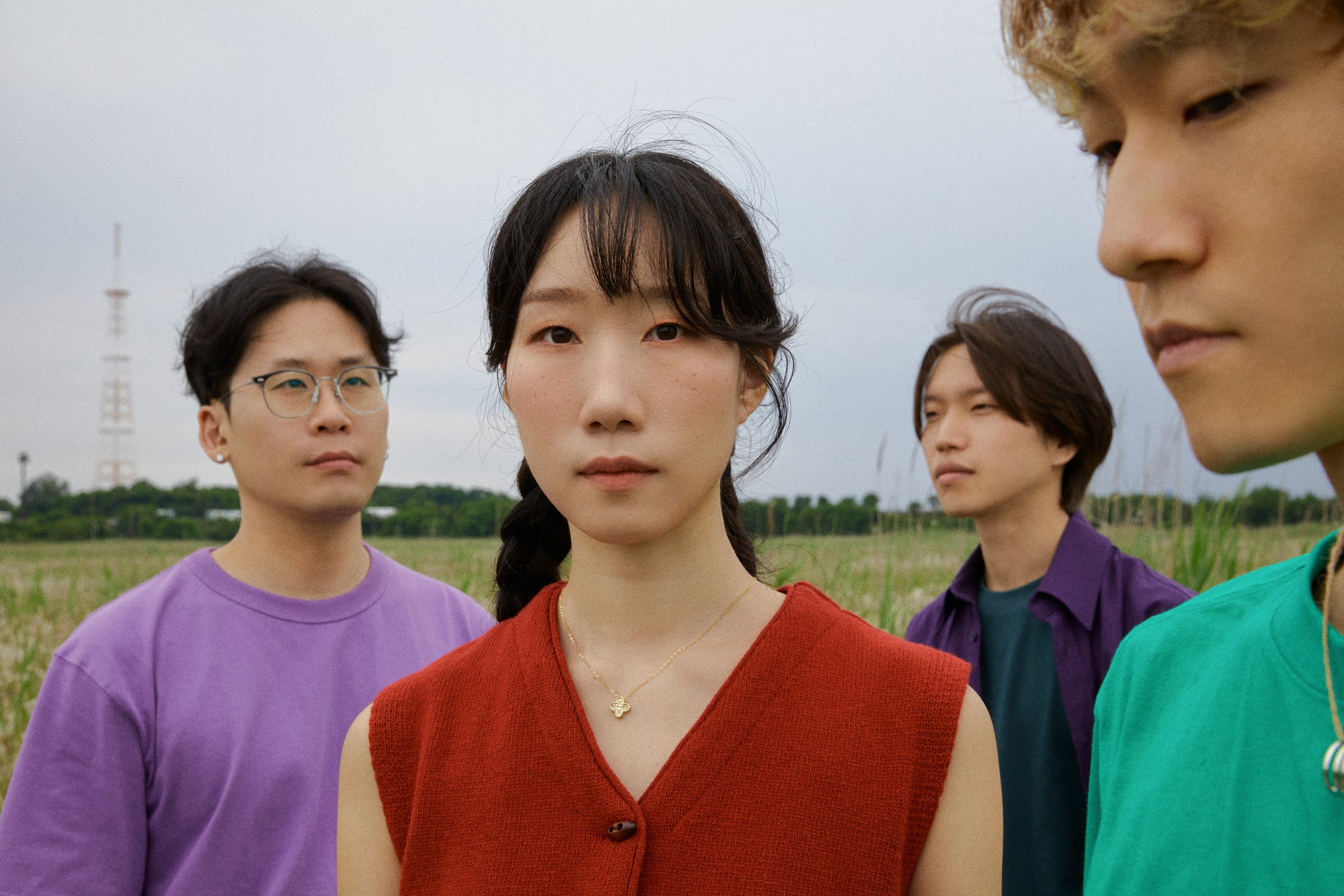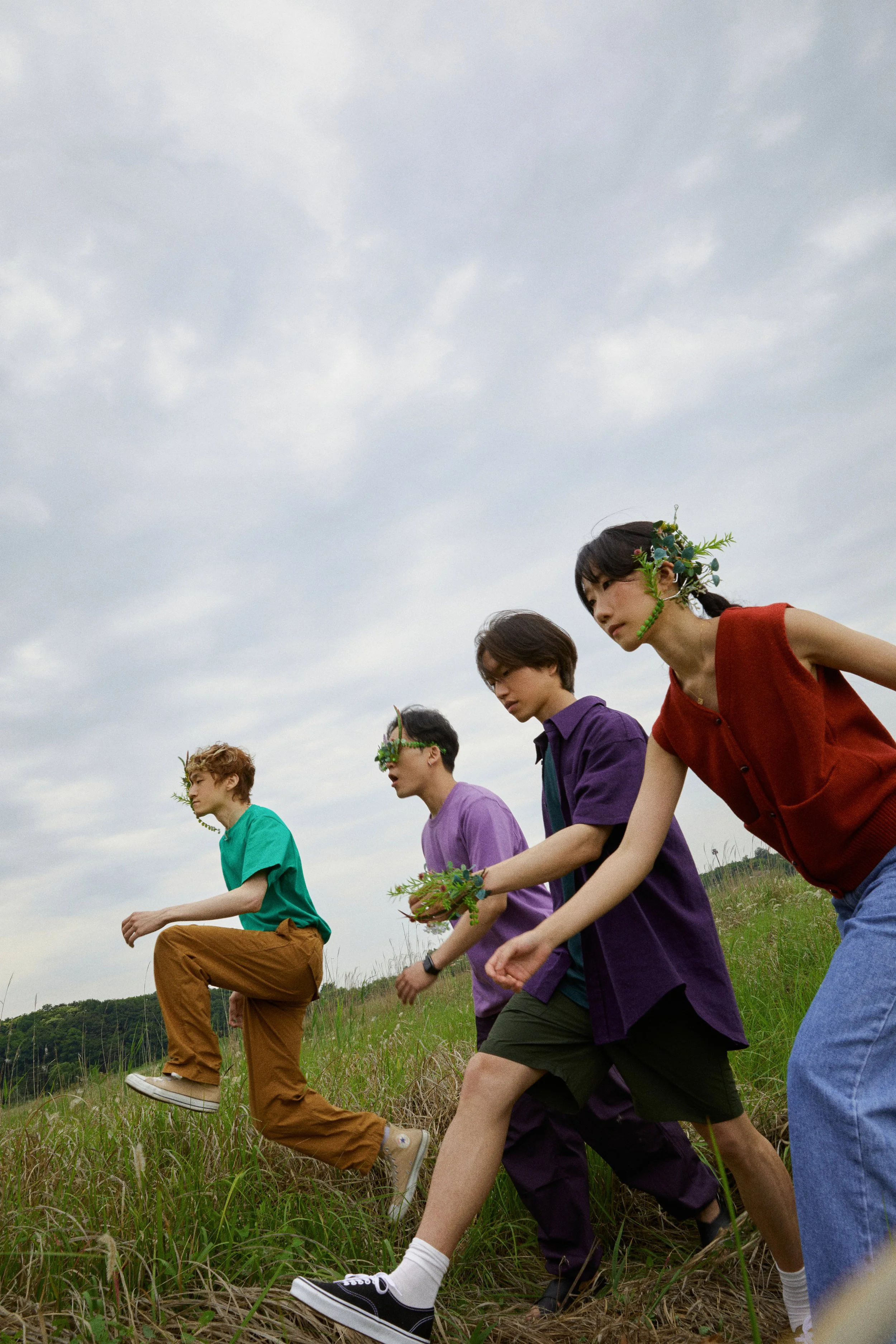Math rock band Dabda on making bright music to tackle darker days
By Jamie Finn (@jamiefinn2209)
Like many countries, the Korean indie scene is full of diverse genres, subgenres, and weirdos making weird stuff. One sound that has never completely taken off here, though, is math rock. That's where Dabda come in. With their intricate structures and atypical rhythms, Dabda have made the calculus that math rock equals a good time. Here, we talk to the band about their journey so far.
Dabda's place in the Korean music scene is an interesting one. They've become one of the underground's most recognised names since their formation in 2014, and yet they remain something of an outlier here. Both shoegaze and post-rock have managed to find a footing, with communities building up around the likes of Asian Glow, Seaweed Moustache, and, most famously, Parannoul, to name but a few. Yet, that same love of grandiose textures and emotionally sweeping rock has yet to translate over to Korean math rock. There are a few names that pop, though: cotoba, colours, Sighborggg, and, right in the middle of it all, Dabda.
"When I was in college in Dajeon, I really wanted to form a band." That's Seunghyun, one of the founding members of Dabda. "After I finished my military service, I saw Jiae, who was playing in another band at the time."
"Actually, I was playing in a metal band," adds Jiae (singer and guitarist). The two decided to move to Seoul and form a band. After adding Joseph (guitarist), Dabda was formed and they began recording their first EP, Island of Each, which came out in 2016. "Before then, we didn't really have much of a direction. We took a long break and worked on some demos. When Joseph joined, he added some fresh guitar sounds, and we were able to finish Island of Each."
The 5-track EP is a joyous pastiche of guitar ideas plastered against a vibrantly mathy if somewhat raw, wall. "We still have a lot of love for the first EP," explains Joseph. "It is important to us because it shaped the direction of Dabda even to this day. It's still an integral part of our setlists, too."
Since then, the band have continued to grow and develop their sound and technical ability. As Seunghyun explains: "I think we're steadily improving as we reflect on the parts of our work that we weren't happy with. We're still trying to find new sounds every time we work."
In 2020, Dabda released their only album so far, the incredible But, All The Shining Things Are. The album builds on the sound of their first EP with more ambitious and creative approaches to the math rock formula. It's a dynamic and creative release that sways with an almost-tropical vigour. Each song feels structurally unique, with new sounds and forms being brought in. Yet, it stays true to the core Dabda aesthetic But, All The Shining Things Are was a critical success, with Korean Indie describing it as "one of the most joyful and interesting rock albums in recent memory."
One particular song from the album, Polydream, has connected especially well with crowds and has become the band's most popular track. "For me, Polydream has kind of a long run time, but it doesn't feel long to listen to or to play," says Seunghyun. "It builds up to a climax where all the members can blast it out. It makes it really fun to play live."
"I think Polydream is a great song because it expresses all the sounds we wanted to capture as a band in one song," explains Joseph, "and I think a lot of people like it because it's a pure song, so it's a song that defines Dabda because of its honesty."
In 2021, Dabda achieved a personal milestone, working with members of the legendary Japanese post-rock band toe. "That was a dream come true," says Seunghyun, "we're all big fans of that band, so it was incredible to work with them. It came about because our agency introduced us to Kashikura Takashi and shared Polydream with him."
"Unfortunately," he adds, "because of the pandemic, the collaboration had to be done online. In 2023, though, we toured Japan, and we got to play with Kashikura-san. Kashikura was my role model, so every single moment was so precious to me. Performing together, we learned how to breathe together on stage despite our different languages. We not only played "Jungle Gym" (the track they collaborated on), but we also played "Polydream" together."
Since then, Dabda had stayed mostly quiet. Until last summer, when they returned with one of the best EPs of 2023 - Yonder. While the killer 5-track release might not have the same scope as But, All The Shining Things Are, it more than makes up for it with the astral exuberance of an exploding star. From the uncharacteristically direct rock opener, Playing With Fire, to the gravity-defying crescendo of a closer that is One, World, Wound, Dabda have never sounded so energetic. "We really struggled to keep everything together during COVID," shares Seunghyun. "After two years of frustrations, we started working on new music, and we all agreed, 'Let's make songs that we can enjoy on stage.' Whenever we work on new music, we want to do something different than before, even if the change isn't massive for the listener. With Yonder, we wanted to make something that had a satisfying energy after everything we'd all been through."
The uplifting tone of Yonder, though, does not represent a positive mental state for Dabda. "Actually, it is kind of the opposite," clarifies Seunghyun. "I'm not in a good place mentally, and I use my songs to feel better. To brighten up. Also, some of our songs might sound bright, but there are often different moods and emotions behind them."
Jiae adds, "A friend of mine said to me the other day, 'Dabda are like people who are trying to be in the sunshine no matter what.' I think that says a lot about the bright tone of our music."
Recorded music isn't the only thing Dabda have become well-known for, and the band have developed a reputation for electric live shows. "You can't really talk about Dabda without talking about live performances," explains KeoHyun. "We really enjoy performing and get a lot of energy from audiences."
"The biggest reason we wanted to be in a band in the first place was because we wanted to play live," explains Seunghyun. "Performing is important to us. There are moments when I feel like I'm breathing with the audience in the venue, and that's my favourite moment."
Dabda have achieved a lot as a live band, having played big festivals in different countries. But the group still has some ambitions regarding the stages they would like to perform. "I've always wanted to play Glastonbury," says Keohyun.
"It would be fun to play on a cruise ship sometime," adds Joseph, "It would be nice to have the ocean as a backdrop during the day, and when it gets dark at night, I'd like to play on an outdoor stage with outdoor lighting, with the smell of the ocean and the wind in my hair."
"I'd like to play on an island in Thailand," says Jiae. "Right after the performance, you could jump right into the sea."
Before the band cannonballs off a stage in Pucket, Dabda have a few more things to take care of. "We want to perform in other countries outside of Korea. Nothing is set yet, but we're looking for opportunities. Other than that, we'll be preparing for our next full-length album, and we'd love to do a world tour someday."
As the interview comes to an end, Jiae discusses the message or meaning behind Dabda, if there is one. "It's an abstract record of the mind, a little empathy or comfort for the things that are hard to struggle with or understand in life. I think it's very difficult to express ourselves, and I think music is a tool to articulate that. That's what all art is, of course, but music feels more primal. We say a lot in order to not feel alone, and I hope that even if we say a lot of things, it can sometimes resonate, and we feel like someone understands that part of us that often isn't understood."
For more information on Dabda, follow them on Instagram here.









